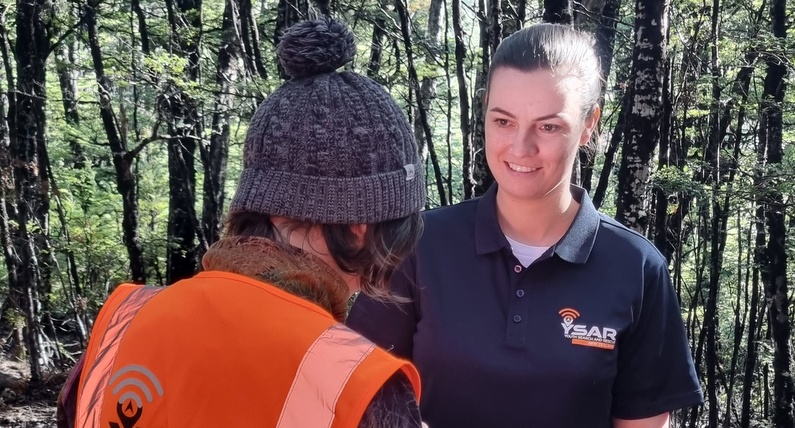
10 questions with Jess Sullivan
Jess draws on her broad experience in SAR and Emergency Management to train and inspire the next generation of responders at Youth Search and Rescue Christchurch.
Can you tell us about your background growing up?
My family is into the outdoors, but the Four Peaks Challenge during primary school was really influential for me. The challenge involved training and support to climb the iconic Canterbury foothills of Mt Grey, Thomas, Oxford and Richardson. Later I completed a Bachelor in Sustainability and Outdoor Education at Ara Institute of Canterbury.
What led you to an interest in SAR?
A close family friend was a Police SAR Squad member, and I was fascinated with all the stories he told. But being involved in a SAR operation was what really got me! During the Four Peaks challenge, one of the adults got injured, and we had to call for help. Seeing the rescue in action was amazing: I knew I had to be part of that one day.
When did you become a SAR volunteer?
I joined Land Search and Rescue Oxford in 2020. It’s a fantastic bunch of people, with a wide range of special skills. For example, we’ve got people that use radios for work who do our comms train-ing, and medical professionals who run regular first aid sessions.
What is important to you about being a Land Search and Rescue peer support person?
Mental health is so important for responders. We all get into this sector to help others, but who helps the helpers? I want to provide a relatable sounding board for volunteers who are having a hard time, or help them access the other well-being resources that Land Search and Rescue has on offer.
Is there a memorable SAR operation you can tell us about?There isn’t one that stands out in particular, but we are getting more operations that are multi-agency. It's rewarding to contribute our skill set as a piece of the solution to a bigger problem.
You also volunteer for other agencies. What roles have you done there?
I volunteered for eight years for NZ Response Team 1, which sup-ports Civil Defence and Urban Search and Rescue. While working for Hato Hone St John, I started volunteering on the ambulance and still get out on the trucks when I find some free time.
What do you do for work and how did you get into it?
I work for Selwyn District Council, as an Emergency Management Officer. My own experience with natural disasters, such as a large cyclone when in Australia, highlighted the need to improve emergency response. That inspired me to study for a Graduate Certificate in Emergency Management. My past experience and diverse skill set allows me to have a multi-agency perspective to my work.
How did you become a YSAR instructor?
I’d heard a little about YSAR before learning the Christchurch branch was starting up. They were after people with a background in the outdoors, SAR or emergency management and I ticked a lot of those boxes. I reached out to them and began instructing at the start of 2024.
What's the best thing about volunteering with YSAR?
We get to watch these young adults grow in confidence, not only in their SAR skills, but in themselves. We’re able to give them the space to develop their leadership, problem solving, communication and teamwork.
What would you say to others who might be interested in instructing for YSAR?
Having role models is so important for our YSAR wāhine. I wanted to continue the legacy of women before me, to show young women that there are many places for them in SAR and Emergency Management. So, I want to really encourage other women in the sector to consider instructing for YSAR. There are new branches starting up around the motu and they all need quality instructors.
Feature image: Jess Sullivan. Supplied
This story was originally published in the June 2024 issue of Link magazine.
